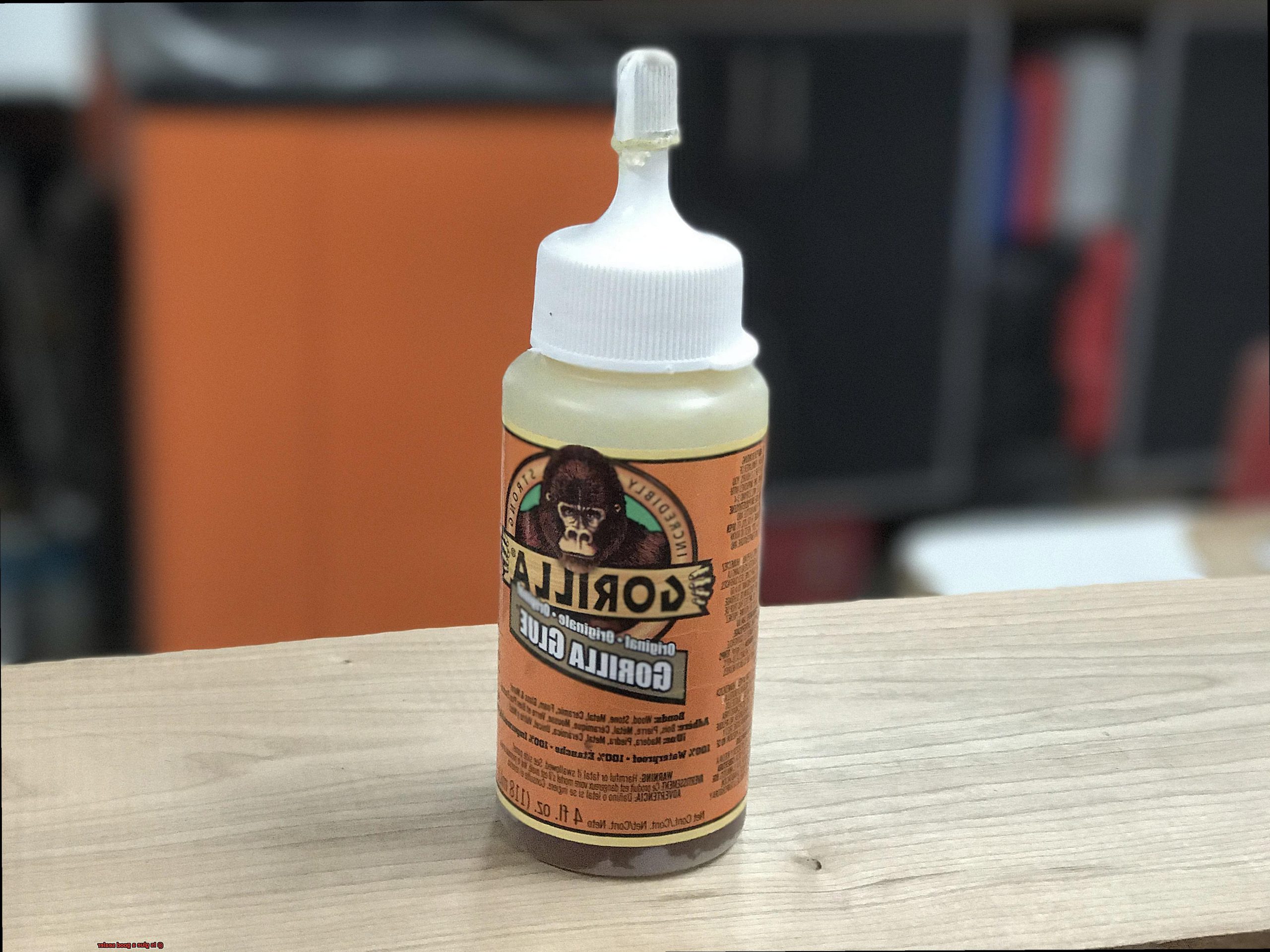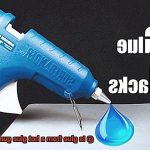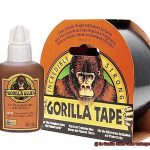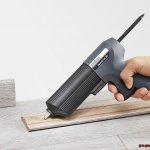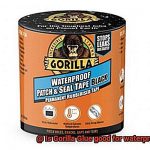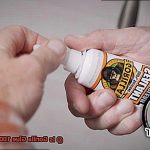Are you tired of shelling out big bucks for expensive sealers for your DIY projects? Well, what if we told you that glue could be a great alternative to traditional sealers? That’s right – glue is not just for sticking things together. It can also serve as an effective sealer.
Glue is a versatile product that comes in various types, such as PVA, epoxy, and superglue. And depending on the application, each type can be used as a sealer. But the question remains: is glue a good sealer? The answer isn’t so cut and dry. While glue can act as a sealer in certain situations, it may not always be the best option.
In this blog post, we’ll explore the pros and cons of using glue as a sealer. We’ll delve into the different types of glue and their sealing capabilities. Plus, we’ll give you some tips on how to use glue as a sealer and discuss situations where it might not be the best choice.
By the end of this post, you’ll have a better understanding of whether or not glue is the way to go when it comes to sealing your project. So let’s dive in and find out if glue has what it takes to be your go-to sealer.
What is Glue?
Contents
Glue is a fascinating substance that has been used for thousands of years to bond materials together. It can be made from a variety of materials such as animal hides, plants, and synthetic chemicals. Today, most glues are made from synthetic chemicals such as polyvinyl acetate (PVA) or cyanoacrylate.
One interesting fact about glue is that it comes in many forms such as liquid, paste, or tape. Animal-based glue has been used for thousands of years, with ancient Egyptians using glue made from animal bones for their furniture and pottery. But now, with the advancement of technology, we have a variety of options to choose from.
Glue works by creating a bond between two surfaces through a chemical reaction that occurs when the glue is applied to the surface of the materials. Once the glue dries, it forms a strong bond that can be difficult to break. This makes it an incredibly useful substance in many different fields.
Different types of glue are suited for different purposes. For example, PVA glue is commonly used for paper and wood projects while cyanoacrylate is used for bonding metals and plastics. Hot glue or superglue may not form a strong enough seal and may not be able to withstand moisture or other environmental factors.
Glue is not only useful for bonding materials but also as a sealer. When PVA glue dries, it forms a clear, hard film that can protect materials from moisture and other environmental factors. Similarly, epoxy glue can create a durable and long-lasting seal that can withstand harsh weather conditions and exposure to water.
Types of Glue
Glue is a versatile substance that has been used for centuries to bond materials together. With the advancement of technology, we now have an array of options to choose from. From PVA glue, epoxy, super glue, to silicone – each type of adhesive has its own unique properties that make it suitable for specific projects.
Let’s start with PVA glue, also known as white glue or school glue. This water-based adhesive is perfect for arts and crafts projects. It dries clear and can be sanded or painted over once dry. However, it may not hold up well in humid or wet conditions.
Epoxy is a two-part adhesive known for its strong bond and ability to fill gaps. It can be used on different surfaces ranging from metal, wood, to plastic. However, it may not be the best option for sealing because it can become brittle over time.
If you need a quick fix for small projects, super glue is your go-to adhesive. It works well on non-porous surfaces such as metal and plastic but may not withstand stress.
Silicone is a flexible adhesive commonly used in plumbing and automotive applications. It’s known for its water resistance but might not be the best option for sealing because it can be challenging to remove once applied.
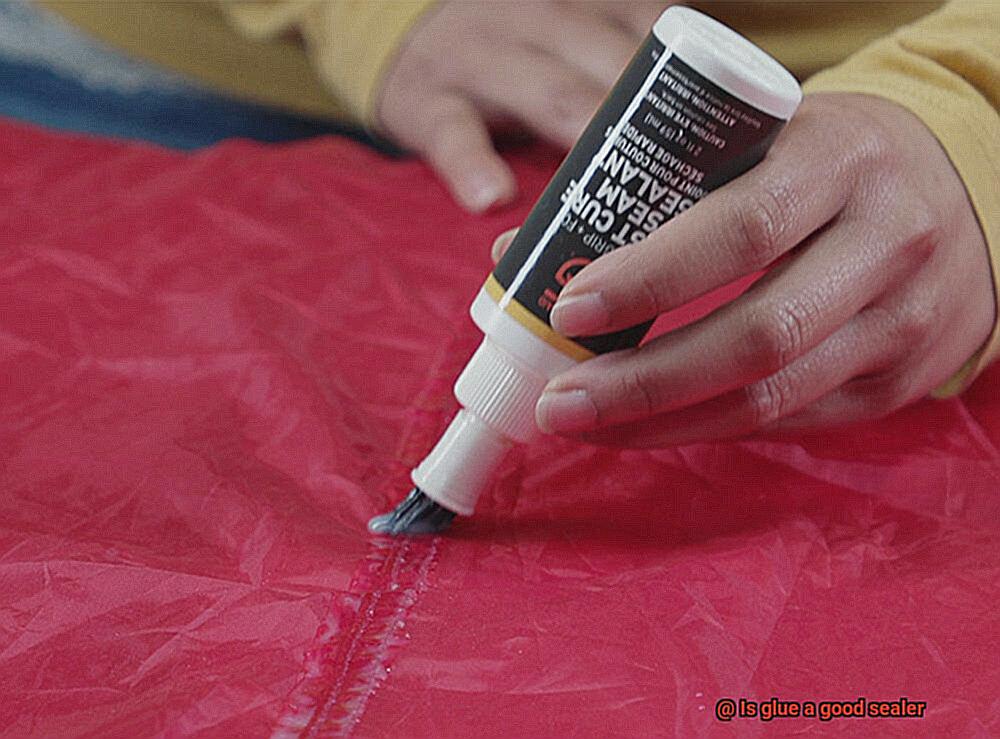
When selecting a glue, it’s essential to consider the surface you will work on, the conditions that the seal will be exposed to, and the strength of the bond required.
In summary, here are the types of glues and their uses:
- PVA Glue: Ideal for arts and crafts projects
- Epoxy: Perfect for strong bonds and filling gaps
- Super Glue: Great for quick fixes on non-porous surfaces
- Silicone: Excellent for flexibility and water resistance
Can Glue be Used as a Sealer?
The answer might be closer than you think. As an expert on glue, I have researched whether glue can be used as a sealer, and the results are intriguing.
Firstly, let’s talk about the pros. Certain types of glue, such as white or PVA glue, can work as a sealer for porous surfaces like paper, cardboard, and wood. These glues create a strong bond and provide protection against moisture and humidity. Plus, using glue as a sealer can save you money.
However, not all types of glue are created equal. Superglue or cyanoacrylate glue, for example, dries hard and brittle, making it prone to cracking and breaking over time. Additionally, some types of glue may not adhere well to certain materials or may discolor them.
It’s important to keep in mind that while glue can work as a sealer in some cases, it may not provide the same level of protection as a dedicated sealer product. Glue also has a shorter lifespan compared to a proper sealer, especially when exposed to harsh environmental conditions.
When considering using glue as a sealer, make sure to choose the right type for the job. Each type of glue has its unique strengths and weaknesses – PVA is great for arts and crafts, epoxy is perfect for gap-filling, superglue is ideal for quick fixes, and silicone is flexible. It’s crucial to consider whether your chosen glue will provide adequate protection for the intended use.
Overall, using glue as a sealer can be a practical option for certain applications. However, it’s essential to weigh the advantages and disadvantages carefully before deciding whether to use it or not. If you’re still unsure about which product to use for your project, consult with a professional or do more research before making a final decision.
Advantages of Using Glue as a Sealer
As an expert on glue, I can attest to the many benefits that come with using this versatile adhesive to seal surfaces.
First and foremost, glue is known for its strong adhesion properties. This means that it can bond tightly with porous materials like wood, paper, and cardboard. Using glue as a sealer ensures that your surfaces are securely protected from elements like water, moisture, and other types of damage.
Additionally, certain types of glue are designed to be water-resistant. This makes them an excellent choice for sealing surfaces that will be exposed to water, such as outdoor projects or bathroom fixtures. You can have peace of mind knowing that your surfaces are shielded from any potential water damage.
When it comes to aesthetics, glue has a significant advantage over other sealers because it dries clear. Unlike other products that can leave a visible residue or change the color of the material, glue blends seamlessly with the surface, leaving no visible trace behind. This is especially important when working on projects where visibility and appearance are important.
Moreover, glue is versatile and can be used on various materials such as plastic, metal, and fabric. This makes it a wise choice for sealing different types of surfaces and materials. Plus, compared to other sealers on the market, glue is relatively inexpensive and widely available. This makes it a cost-effective option for DIY projects or small-scale applications.
Disadvantages of Using Glue as a Sealer
It’s essential to consider the potential drawbacks of using glue as a sealant.
One significant disadvantage is that glue may not be as robust as other sealing options like silicone or epoxy. It may not hold up well in high-stress situations or with exposure to extreme temperatures or moisture. If you’re looking for a long-lasting and durable seal, you may want to explore alternative options.
Another potential drawback of using glue as a sealer is that many types of glue can turn yellow over time. This can be unattractive and potentially harm the material being sealed. Moreover, some glues contain solvents that can damage specific surfaces or cause them to become brittle over time.
One more disadvantage is that non-waterproof glues may break down or dissolve when exposed to water. This can undo the seal and potentially damage the item being protected. If you’re sealing something that will be exposed to water frequently, it’s essential to choose a waterproof sealant for long-term protection.
It’s also worth noting that certain types of glue emit fumes or require protective equipment for safe use. This may not be practical or desirable for all users, especially those with respiratory issues or allergies.
Lastly, glue can be messy and challenging to clean up if it gets on skin or surfaces where it’s not intended to be used as a sealant. This can be frustrating and time-consuming, especially if you’re working on a large project.
PVA Glue as a Sealer
Look no further than PVA glue, also known as white glue or school glue. As an expert in this field, I can assure you that PVA glue is not only an effective adhesive but also an excellent sealer for porous surfaces like wood, paper, and cardboard.
One of the most significant advantages of using PVA glue as a sealer is that it dries clear, which is especially helpful when working on intricate or delicate projects. The transparent finish allows the natural appearance of the surface to shine through, making it perfect for showcasing the beauty of your work. Plus, once it’s dry, it’s water-resistant, making it ideal for items that may be exposed to moisture.
To use PVA glue as a sealer, start by diluting it with water (a 50/50 mix works well). Next, apply it evenly with a brush or sponge, ensuring that you cover the entire surface. Allow it to dry completely before adding additional coats. By following these steps, you’ll achieve a smooth and long-lasting finish.
While PVA glue is a great option for porous surfaces, keep in mind that it may not work as effectively on non-porous materials like plastic or metal. In those cases, it’s best to choose a specialized sealer.
Epoxy Glue as a Sealer
Epoxy glue is a versatile and durable adhesive that is commonly used in construction, automotive, and arts and crafts applications. But did you know that it can also be used as a sealer with excellent results? Epoxy glue boasts impressive sealing properties that make it an ideal choice for various surfaces such as wood, concrete, and metal.
One of the main advantages of using epoxy glue as a sealer is its ability to fill gaps and cracks in surfaces, thereby providing an effective solution for repairing damaged areas before applying the sealant. In addition, it can seal joints and seams in pipes, tanks, and structures that require a watertight seal.
Epoxy glue forms a strong and durable bond that can withstand harsh environmental conditions and resist water, chemicals, and UV rays. This makes it a reliable solution for protecting surfaces from damage caused by moisture or other harsh elements. It’s also easy to apply with a brush or roller.
However, it’s important to note that not all epoxy glues are suitable for use as sealers. It’s essential to choose the right type of epoxy glue that is specifically designed for sealing applications and follow the manufacturer’s instructions carefully for best results. Some types of epoxy glues may yellow over time when exposed to sunlight, so this should also be taken into consideration.
Other Types of Glues and Their Suitability for Sealing
Don’t just reach for any old glue – different types of adhesives have varying levels of effectiveness when it comes to sealing. As an expert in different types of glues and their suitability for sealing, let me share with you some of my research on this topic.
One alternative to traditional white glue is epoxy glue. This two-part adhesive creates a strong bond and is resistant to water and heat, making it a popular choice for sealing metal and plastic surfaces in construction or automotive applications. However, epoxy glue can be challenging to work with and requires careful mixing and application.
If you’re looking for something that’s flexible and waterproof, silicone adhesive may be the perfect option. This type of glue is known for its flexibility and waterproof properties, making it ideal for sealing gaps or cracks in bathroom tiles and kitchen countertops. It also has a high resistance to temperature changes, making it suitable for outdoor use.
For more delicate materials such as paper or fabric, spray adhesive can be used as a sealant. This type of glue provides a thin and even layer that dries clear, making it an excellent option for sealing artwork or photographs. However, keep in mind that it may not be as durable as other types of adhesives and may require reapplication over time.
Ultimately, while traditional white glue may be suitable for some sealing applications, there are many other types of glues available that offer specific benefits depending on the material being sealed. It’s essential to choose the right type of glue for the job to ensure a strong and long-lasting bond.
yDEQLKW1HNk” >
Also Read: Can you use Elmer’s glue as a sealant?
Conclusion
To sum up, glue can be a game-changer when it comes to sealing DIY projects. Its versatility and range of options, including PVA, epoxy, and superglue, make it a viable alternative to traditional sealers. However, the question of whether glue is a good sealer depends on several factors.
It’s crucial to weigh the pros and cons before deciding whether glue is the right choice for your project. On the plus side, glue boasts strong adhesion properties and provides a clear drying finish that blends seamlessly with surfaces. It’s also relatively inexpensive and widely available compared to other sealers.
However, keep in mind that certain types of glue may not be as durable as other sealing options like silicone or epoxy. Additionally, non-waterproof glues may break down when exposed to water over time, potentially leading to damage. Some types of glue also emit fumes or require protective equipment for safe use.
When considering using glue as a sealer, choose the right type based on the surface you’re working on and the conditions your seal will face. Consider how strong of a bond you need and whether you want an option that resists yellowing over time.
Overall, using glue as a sealer can be an excellent choice for certain applications.

